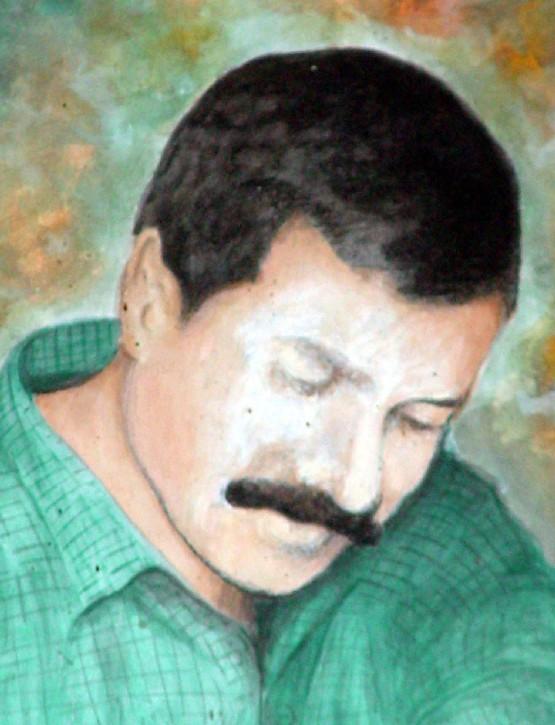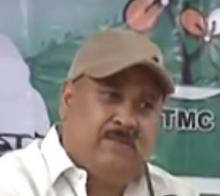"We have waited thirteen years, another hour should not be to difficult to bear, will it?" said an elderly bystander to a colleague, as all of us waited to hear the verdict of the Central Bureau of Investigation (CBI) charge sheet filed in the Kamrup District and Sessions Court, against the surviving accused in the Parag Kumar Das assassination case. The premise of the court was packed with media persons, lawyers, human rights activists, and police personnel. Among the crowd were nervous supporters of the accused who had regulation crew cuts, wore trendy shoes, jeans and white shirts. A narrow path leading to the court separated them from Parag Das’ well wishers and friends, and for an illusionary moment, the possibility of violence – should the accused be found guilty – hung over the balmy, overcast Guwahati morning. A few minutes later, the accused – Mridul Phukan – walked out with a nervous smile on his face, even as waiting news anchors frantically whispered, "Khalas, khalas" (or, "finished, finished") to their newsrooms. After thirteen years, the only surviving accused in the murder of Assam’s foremost activist and public intellectual, walked into the arms of his edgy friends and into a black SUV that whisked him away. He could afford to smile because the CBI was unable to present enough evidence to indict him in a murder that took place in full public view.
In the afternoon of May 16, 1996 as Parag Das was bringing home his young son from school in Chandmari, Guwahati, he was assassinated by four men. An unassuming, erudite man, Das was one of the founders of the human rights movement in Assam and a tireless activist who fought for the rights of the indigenous peoples of Northeast India. Before he found his calling as a rights activist and radical journalist, Das was the manager of the Guwahati Stock Exchange. His public execution in broad daylight elicited outrage in Northeast India. The four accused of assassinating Das were surrendered members of United Liberation Front of Assam (ULFA), who formed the core of the "secret killings" strategy, comprising certain members of the security forces and surrendered militants that created terror in Assam from 1996 until 2001.
In 2001, the CBI filed its charge sheet on the assassination to the court. Human rights activists expressed concern, stating that key witnesses were not interviewed; some were intimidated; and material related to the case were tampered with to ensure that there were enough loopholes that would acquit the accused and cover up the role of the state machinery in Parag Das’ murder. Furthermore, two of the accused – Diganta Baruah and Tapan Dutta – were killed before the CBI filed its charge sheet. A third, Nayan Das, was hacked to death by an irate mob in Dibrugarh in 2003. Hence, Mridul Phukan had become the central figure in a story that continues to haunt the memories of an entire generation in Assam.
"I remember I had just finished taking an exam and heard that Parag Das had been killed", said Rasel Hussain, holding back his anger and outrage outside the court. He spoke of how he went to see Das’ body in the Guwahati Medical College; seeing politicians and prominent people beating their heads in apparent anguish and crying about the death of a dream in Assam. For Rasel, the outrage was not about the acquittal but for the insidious manner in which a pliant middle class had bartered Parag Das’ ideals for money and power. Everything had changed in the last thirteen years, he felt. Yet, it was frustrating to acknowledge that nothing had changed inasmuch as the Indian state apparatus’ continuous refusal to address the deep sense of injustice that the people of Assam feel. Parag Das therefore, is a symbol of a region and its people’s dreams of justice, said Rasel.
Such dreams of justice have to confront the crassness of reality, sometimes across a narrow pathway in the Kamrup District and Sessions Court. His companions with bloodshot eyes garlanded Mridul Phukan and before a stunned public could react, they had muscled him out of the court. "There you go", said Orup Koch, as caustically as possible. "Indian democracy at its best: where murderers are garlanded and set free as a reward for serving the oppressors", he added.
One is sure that we have not heard the last of this case. Tonight, a handful of nervous SULFA men will drink in some unfortunate dive along National Highway 37; a few bureaucrats, police officials, army personnel and politicians, will fret and wonder about the next time that the Indian judicial process is called to redeem itself and if they would be safe then. As various civic organisations extend their support for a general strike called by Manab Adhikar Sangram Samiti (MASS) on July 30, 2009, the assassination of Parag Kumar Das and the manner in which the Indian state has acquitted itself, will go down as another day in the democratic polity of India, where perpetrators celebrate legal verdicts that perpetuate lawlessness and injustice.
Sanjay (Xonzoi) Barbora
July 28, 2009: Guwahati
Chief Minister Tarun Gogoi has written to his counterparts in Kerala, Andhra Pradesh, Karnataka and Maharasthra to ensure safety of the Assamese people living in these states. According to information, Gogoi has received assurance that the people from the states would be provided adequate security in the time of ethnic clash in BTAD areas and Dhubri. Gogoi has given instruction to the district authorities to maintain calm even as Prime Minister Manmohan Singh, UPA chairperson Sonia Gandhi and the Union Home Minister Sushil Shinde have given separate assurances that security will be provided to affected people.







Comments
Pages
Add new comment